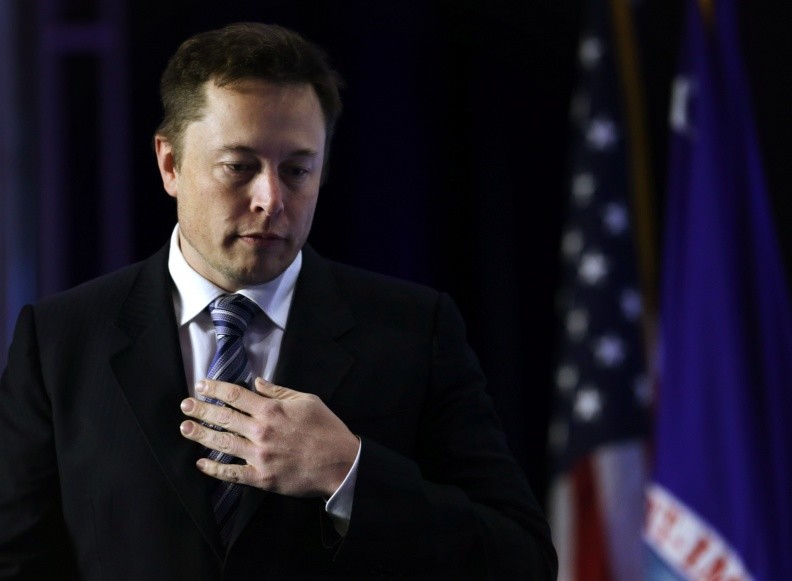
Musk could have other investors join him in the takeover, or sell his Tesla shares, as well as his cryptocurrency, to complete the takeover of Twitter.
On Monday, April 25, EST, the board of directors of the social networking platform Twitter announced a final agreement that Musk's wholly-owned entity would acquire Twitter for $54.2 per share in cash, valuing Twitter at about $44 billion. After the transaction closes, Twitter will become a privately held company.
Just a few days ago, in the face of Musk's takeover offer, Twitter's board of directors had already used the "poison pill plan" to show its refusal: if there were foreign investors who held more than a certain proportion of the shares, the board would issue preferred shares to existing shareholders, greatly diluting the acquirer's shareholding ratio and voting rights.
But Musk is not afraid. His acquisition documents show that about $13 billion in financing will come from Morgan Stanley, Barclays and other financial institutions, and another $12.5 billion is mortgaged through his Tesla stock and pledged to invest $21 billion in Twitter, which comes from Musk's "direct or indirect" equity.
That brings to an end one of the biggest leveraged buyout deals in history, but there's still a mystery in Musk: How will he deliver on the $21 billion equity financing promise he personally secured in the deal?
It is believed that as the world's richest man, Musk will undoubtedly be able to raise this money. However, according to Bloomberg's estimates, he has only about $3 billion in cash and liquid assets. Therefore, Bloomberg speculated that he still needs to rely on some "external forces".
Help from other investors
Bloomberg believes that an important way for Musk is to find like-minded investors who share his vision for Twitter and join his acquisition of Twitter. This means that part of the equity will come from new or existing shareholders.
Musk has hinted that such a strategy is possible. After he initially offered to buy Twitter, Musk said at a TED event: "The aim is to retain as many shareholders as the law permits." ”
The number of shareholders in U.S. private companies is usually no more than 2,000, which means that most retail investors will not continue to hold shares in Twitter if the acquisition is completed.
And major shareholders like Twitter founder Jack Dorsey, if they trust Musk, may choose to continue holding a stake in the company. Dorsey's stake in Twitter is worth nearly $1 billion. Bloomberg reported on Monday that Musk is looking for equity partners and continues negotiations with other potential co-investors.
But on the other hand, Musk said at the TED conference that he "doesn't care about economic issues," which could scare off some potential investors.
Sale of a stake in Tesla
Bloomberg also expects that if Musk can't find other equity investors, he will have enough money to stand alone, thanks to his stake in Tesla.
Musk will still own about $21.6 billion worth of unsecured Tesla stock after repaying a $12.5 billion margin loan with collateralized shares, according to Tesla's closing price on Monday. Selling the shares at after-tax prices would allow him to deliver on a $21 billion equity financing promise, but that still largely depends on Tesla's stock price.
And this strategy has its own risks. First, concerns about Musk's need to sell some of his shares may have had a negative impact on the electric car maker's stock price. Tesla shares have fallen about 8 percent since the beginning of the month.
Another possibility is that Musk would sell his stakes in SpaceX and the tunneling company The Boring Company, but they are much less liquid.
Hidden wealth that is not known?
Bloomberg also envisions a possibility: Musk is even richer than the Bloomberg Billionaires Index calculates. In other words, Musk's wealth may have exceeded the scope of people's existing cognition.
Musk's cash estimates are based on relevant documents and news reports about publicly traded stocks, but much of the information about his private finances is limited. For example, if his portfolio performs better than the market, Musk may be richer than Bloomberg estimates, then he won't need a new source of funding to pay for the $21 billion.
Musk said in July that he holds Bitcoin, Ether and Dogecoin. While it's unclear how much he holds and for how long, the Bitcoin and Ethereum cryptocurrencies have risen about 720% and 2600%, respectively, since March 2020, well above the S&P 500's about 90% gain. Meanwhile, Dogecoin surged nearly 30 percent on Monday after Musk acquired Twitter.